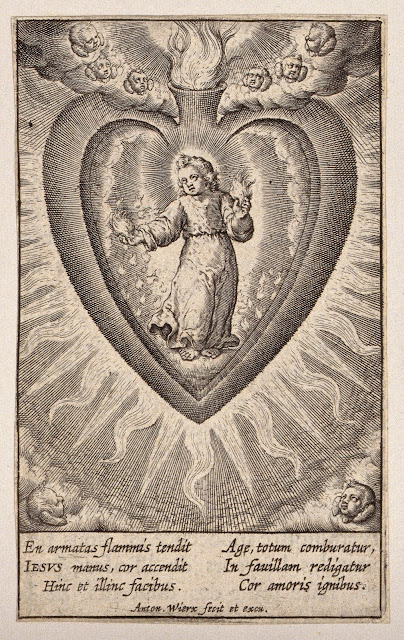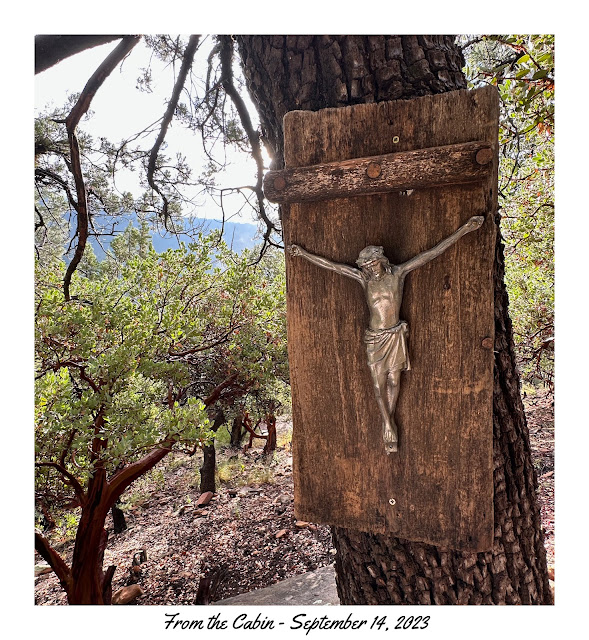Tuesday, September 26, 2023
The Annunciation
Monday, September 25, 2023
The Espousals
A True Story
The Presentation of Mary
The law of Moses allowed men and women to make a vow and dedicate themselves, for a time or for life, to the service of God. So did Anna lend her son Samuel to the Lord to be employed about the Tabernacle. The Blessed Virgin also was presented in the temple by another Anne, her mother, in pursuance of a vow. At the age of three she was offered, and till her fifteenth year she remained in the quarters set apart for the widows and young maidens, "who departed not from the temple, by fastings and prayers serving night and day" (Luke ii. 37). The traditions of the Eastern Churches record that this child of grace was, as a special privilege, allowed to pray in the Holy of Holies, where no other but the High Priest once in the year could enter. Those Churches from the earliest times kept up the memory of these events in the Feast of the entry of Mary into the Temple; the Western Church celebrates it as the Presentation. Holy Scripture says: "After her shall virgins be brought to the King . . . they shall be brought into the temple of the King" (Ps. xliv. 15, 16). In imitation of the Blessed Virgin, hundreds of thousands of other virgins have sought a refuge from the world near the tabernacle of God, and dedicated their whole lives to the practice of austere virtue, and the service of God and man. How blessed is the Church in the holy example given by Our Lady, and in the inspiration and strength from the Holy Ghost which have enabled so many to follow in her foot steps ! Thank God for the abundant benefits resulting from this devotedness.
Saturday, September 23, 2023
The Nativity of The Blessed Virgin
"Who is she that cometh forth as the morning rising, fair as the moon, bright as the sun, terrible as an army set in array ?" (Cant. vi. 9). The Nativity of the Blessed Virgin was indeed like the dawn, caused by the sun, and announcing the approach of day. Mary appeared, the early reflection, by her grace and sinlessness, of the first beams of the Sun of justice. That dawn was eagerly looked for during the long night of the old dispensation, continually promised and prefigured. Our Lady is compared to the moon, fair and beautiful, a subordinate luminary, with no light of its own, but shining with a reflected brightness. She is also "the woman clothed with the sun" (Apoc. xii. 1), bright with the sun's brightness, with the glory of Jesus Christ, because she is the image of His virtues, and has her dignity from Him. She is terrible to the hosts of hell, as being the only one over whom they had never prevailed, and as the Mother of their Conqueror. As in every other case, the splendour of this work of God was shrouded in humility. Except the parents of Mary perhaps, none knew the greatness of this child of promise. The day which gave joy to the unseen world passed without notice in the sphere where it occurred. She herself did not suspect, till the angel announced it, the designs that God had for her. Consider how God regarded the day of Mary's birth; consider what it was to God the Son who was to be born of her; consider its importance to the world and to you.
The Graces & Merits of Mary
The Immaculate Conception, part 2
Science teaches us that, where there is an apparent gap in the chain of life, there must be some being which fills it. There was one important deficiency; there was no example of a simple human being who was sinless and full of grace. The only two who were so created hastened promptly to disembarrass themselves of the great privilege at the mere word of the tempter. The completeness of God's work in Creation and Redemption required that there should be an example of what His grace was able to effect in human nature, a being that we could look up to as the ideal of simple creatures in the class below the Divine Man. Many had risen to great holiness by repentance for their sins, others by innocence which they never lost; Jeremias and John the Baptist had further been purified from sin before their birth. Still, in one remote corner of human life Satan had found a strong hold; all were, in the first moments of existence, subject to him by original sin. It was necessary in one case to drive him from that last retreat, and exhibit one being absolutely free from sin and full of all human perfection, For the glory of God, the Blessed Virgin was preserved from even the indeliberate inherited stain of sin; she was conceived immaculate. Honour her as the delight of the Almighty, the highest of His works, the fullest manifestation of His power and holiness, the example of perfect human life among mere creatures.
Thursday, September 21, 2023
The Immaculate Conception, part 1
Wednesday, September 20, 2023
The Predestination of Mary
 |
| Click to Enlarge |
The Love of Jesus Christ
 |
| Click to Enlarge |
The Ascension
 |
| Click to Enlarge |
Tuesday, September 19, 2023
The Last Words of Christ
 |
| Meditations on Christian Dogma - 1898 |
Friday, September 15, 2023
The Manifestation of The Resurrection
The Resurrection
Sunday, September 10, 2023
The Descent into Hell
Saturday, September 9, 2023
The Cause of Christ's Death
Monday, September 4, 2023
Contrarieties in the Passion
Christ on the Cross
Christ's Death for All Men
Sunday, September 3, 2023
The Excess of the Passion
Saturday, September 2, 2023
The Last Supper

Friday, September 1, 2023
The Transfiguration















